

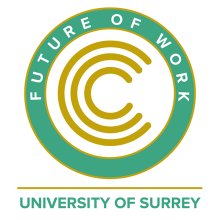
Podcast and blog
Welcome to the blog and podcast page for the Future of Work Research Centre. Here, you can find podcast episodes with our members, blogs that feature more about the episodes and special bonus content.
Episodes and blogs
S10 E18: 'How to make work meaningful' with Professor Ying Zhou
We’ve heard a lot in recent years about purpose-driven organisations and the importance of finding work that aligns with our own values and motivations. In this episode I explore the big question of what makes our work truly meaningful. Are most of us enjoying fulfilling, rewarding work lives or are we stuck in jobs that feel pointless? How do we define meaningful work, what are the factors that make our work more or less meaningful, and how are things like AI and organisational change shaping our experiences?
I’ve researched and written about the freedom to pursue meaningful work in my upcoming business book People Glue, so I’m delighted to be discussing further this today with my guest Professor Ying Zhou, Director of the Future of Work Research Centre at the University of Surrey. A leading expert on job quality and employee well-being, Ying’s award-winning research appears in leading academic journals and has influenced policy across the UK and Europe.

These days, it feels like you can’t leave the house without hearing about AI: what it can do, if it might take our jobs, and what’s around the corner in the next phase of innovation. Of course the prospect of maximising workflows and streamlining productivity is exciting, but at what cost to employee wellbeing and job security?
If these issues have been on your mind, or even impacting decision-making at in your working life as a leader or team member, this episode of the Future of Work podcast is for you. In this episode, we speak with Rob Garlick, a Visiting Professor at the University of Surrey’s Future of Work Research Centre, as well as an author, speaking, consultant and executive coach. Rob has over 30 years of business, finance and technology experience, including thousands of meetings with S-suite and top investors globally. On the episode, we discuss:
- How the rapid landscape of change is affecting leadership demands
- The need to hone ‘pro-human’ leadership even in the face of increased digital reliance
- The proactive elements needed to be optimistic about the future of AI
- Where AI can be an equalizer, and where it can increase social and economic divides
- How employee engagement gaps could be exacerbated by AI – and how to mitigate this
- Why AI innovation – and its backlashes – will not be a straight line to success.
We hope that you enjoy this episode, and we know that this just scratches the surface, so we hope to have him back for another episode soon.
Rob Garlick’s biography:
Rob is a Visiting Professor at the University of Surrey’s Future of Work Centre, as well as an Author, Speaker, Consultant and Coach. Rob has over 30 years of business, finance and technology experience, including thousands of meetings with C-suite and top investors globally. He has had a front row seat for most innovation areas in the last 30 years, published over 60 papers on innovation topics and delivered over 100 talks around the world in recent years on AI and the Future of Work. Rob is currently writing a book on how Artificial Intelligence is changing the world of work and the implications for leadership.
Rob spent three decades in Investment Banking and Fund Management, with UK, EMEA, US and Global management roles. His most recent role was Head of Innovation, Technology, and the Future of Work at Citi Global Insights, speaking to Citi’s corporate, investing and public sector clients. Previously Rob was Head of Citi Research EMEA, leading the team’s (of c.200) rise in the Institutional Investor surveys, from: #7 to #1 in UK, #9 to #2 in Western European, and #7 to #1 globally. As Global Product Head at Citi Research (c.1000 people) a focus was Theme Investing and Innovation. Rob also ran Citi's US Equity Sales desk covering some of the world’s leading asset managers and hedge funds, was a No.1 rated (II) Global TMT Salesperson, a Fund Manager and an Analyst.
Rob was promoted to Managing Director in 2006 and has spent 20 years managing, mentoring, and coaching leaders at all levels. Among other qualifications, Rob holds a Masters in Executive Coaching and Behavioural Change, is a qualified Executive Coach, an EMCC Senior Practitioner, has a BSc (Econ) degree in Accounting and Management and passed the AIIMR (Associate of the Institute of Investment Management & Research) as a prize-winner in Interpretation of Accounts & Corporate Finance.
Resourcing the NHS frequently makes national headlines, but how much do we actually know about the impacts of staff turnover on patient care and safety? Professor Giuseppe Moscelli appeared on the Future of Work podcast to discuss his research addressing this, and other important issues. On the podcast, he discusses:
- Misconceptions about age in health care
- How recent turnover in health care – and the micro-shortages this creates – has led to patient deaths
- The complicated nature of increasing compensation in health care during a challenging economy
- The impact of Brexit on the quality of patient care, and what it means for patient safety
- How to consider taxpayer satisfaction in health care compensation.
Anyone who has ever needed medical care, supported a loved one getting medical care, paid taxes or wondered how the issues in the newspapers affects health care systems will want to tune in to this episode.
Please find more about Professor Moscelli’s research discussed in the episode:
- Professor Giuseppe’s University of Surrey profile:
- Research on NHS turnover
- Brexit discussion paper.
Biography
Giuseppe received both his undergraduate degree in Economics and Management of Institutions and Financial Markets (in 2004) and also his Master of Science in Finance (in 2007) from Luigi Bocconi University (Milan, Italy).
He has worked in the investment banking industry as a front-office risk management analyst in the Capital Markets division of Lehman Brothers (London) in 2007-08, and then in 2009 he moved on to enrol into a PhD programme in Econometrics and Empirical Economics at University of Rome Tor Vergata (second years classes and exams at EIEF in Rome).
From October 2012 to December 2017, he has worked as a research fellow in the Health Policy team of the Centre for Health Economics of the University of York. Giuseppe was awarded his PhD in June 2015 from University of Rome Tor Vergata. In December 2017, he has joined the University of Surrey as a Lecturer in Economics. Promoted to Senior Lecturer in 2019, Associate Professor (Reader) in 2021, and Full Professor of Economics in April 2025.
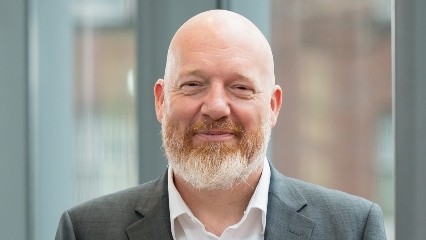
If you are approaching or have experienced midlife and feel maybe a little off, or that there’s been a little dip in your overall happiness and satisfaction, you are very much not alone. On this episode of the Future of Work podcast, we speak with Dr Alan Piper of the University of Leeds Economics Department who is investigating this very phenomenon. Some of the topics the episode dives into include:
- How relationships outside of work affect midlife working satisfaction
- Which factors contribute to a mid-life lull
- How the midlife lull is not the same as a midlife crisis
- The role narcissism can play in the midlife lull.
This conversation touches on just about every aspect of the broader life journey. You may even learn something about your own experience with the midlife lull! Dr Piper also raises some important questions around how the midlife lull is researched and if, in the near future, this lull may be recognised and researched to the degree that adolescence is in the psychological realm. He also points to some new and exciting research that reframes how we look at this significant time in our working (and non-working) lives.
See Dr Piper's personal profile for further information on his research.
Biography
Alan Piper works in the Economics Department at the University of Leeds, and researches human wellbeing. He is particularly interested in the relationship between age, ageing and wellbeing and has published on these topics in several journals. Within this topic, he is particularly keen to learn more about why there seems to be a universal tendency towards a midlife low, a puzzle that he says is one of the most fascinating in all of social science touching on many disciplines and strands of thought.
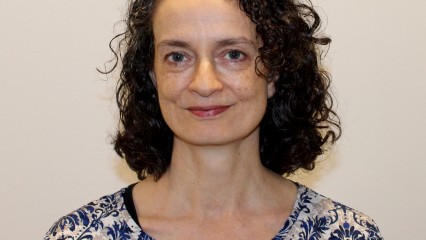
On this show, we talk about recent cutting-edge research, the latest chatter amongst the experts and what's ahead in various industries. But the question remains - how do we train the future of work? How are we preparing the next generation of the workforce to step into leadership, industry and in general, the world of work ahead?
In this episode we start to tackle answering these very important questions. We are speaking with Frances How, the former head of the University of Surrey employability and careers team. We discuss:
- How to equip future organisational leaders now to prepare them to shape the Future of Work
- What Frances would do if she could wave a magic wand in her work with academics
- The most valuable thing students can do to give themselves an advantage in their budding careers
- How academics can use their exciting research to identify key areas where students should upskill their offerings to compete in the working market.
You don’t want to miss this one as I’m sure we can all take away some fresh perspective after hearing what Frances has to say.
More about Frances Gow
Frances worked at the University of Surrey for seven years as Head of Employability and Careers with leadership and operational management responsibility for a team of careers consultants, placements staff and student/employer engagement. The team have won the National Undergraduate Employability Award for Best Placements Service three years in a row and in 2022 won Best University Careers/Employability Service.
She was the pillar lead for Employability in the University’s Curriculum Design Review project and alongside her team developed a Professional Skills Framework. She has a background of 25 years’ experience in Higher Education Careers Service Management in a variety of institutions in London and the regions. Her passion is in managing high performing teams and having input into strategic direction, resourcing and operational challenges.
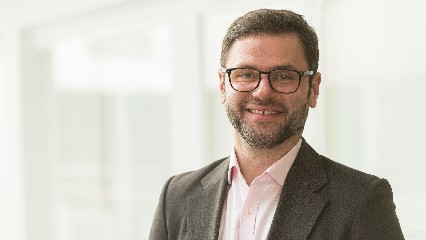
We are speaking with Dr Constantin Ciachir, Senior Lecturer in HRM and OB at the University of Surrey, with expertise in Performance and Reward Management, Employee Relations, Employee Share Ownership, and gift and social exchange.
In this episode, we talk with Dr Ciachir about:
- How transactional interactions in the workplace are not always well-defined – and the complications that can arise from that
- What gift exchanges in the workplace can look like and how these affect broader relationships, especially in multicultural settings
- How working practices are, and have been shaped by the human need to be social
- Whether AI will have the capability to operate in a working system built on social and gift exchange (which can be subtle)
- How humanity is evolving faster technologically than it is socially, and some considerations as a result.
Yes, some fairly juicy topics in the world of working, you don’t want to miss this episode.
Here is a link to Constantin’s research on what happens when people become ‘involuntary shareholders’ that he referenced in the show.
Biography
“I joined Surrey Business School in September 2016. Previously, I held posts at the University of York, UK, where I earned my PhD in Management, and have collaborated with Toulouse Business School (France) and the South Mediterranean University (Tunisia). Prior to joining academia, I worked in various industries, such as fashion, telecommunications, and finance in Germany and the UK. I have also engaged in consultancy/advisory work for the UK Civil Service, Royal Mail, and professional bodies. My core research interests are on social exchanges in the employment relationship and I am also active in researching socio-technical systems (including GenAI) in higher education.”
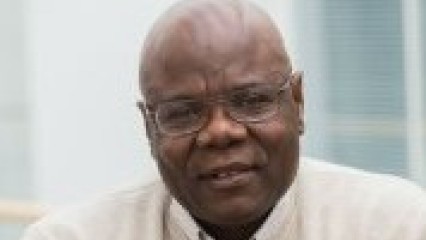
Welcome back to the Future of Work podcast.
Today, we speak with Professor Sam Aryee, professor of Organisational Behavior and Human Resource Management at the University of Surrey. Just to brag a little, it should also be noted that Professor Aryee, according to metrics developed by Stanford University, is among the top 2% of scientists globally when considering citations, h-index, and a wide range of bibliometric indicators. So, it’s real treat to get to speak with him.
Today on the show, we discuss:
- How developing an entrepreneurial approach can help employees manage a volatile environment
- Why employers should encourage ‘psychological ownership’ for their employees in their roles – and how being territorial can derail that
- How the Future of Work Research Centre offers solutions to promote human resource sustainability
- How ongoing learning ties into dignity in the workplace
- How his view on what academics can accomplish has evolved.
Biography
Samuel (Sam) Aryee is a Professor of Organisational Behaviour and Human Resource Management at Surrey Business School, University of Surrey, UK.
Sam obtained his undergraduate degree from University of Ghana, and his MA and PhD from McMaster University, Canada.
Following academic positions at the National University of Singapore and Hong Kong Baptist University and prior to his current appointment, Sam held academic positions at Aston Business School, Aston University and the then School of Business and Management at King’s College London.
His areas of research interest include Strategic Human Resource Management, Work-family Interface, Organisational Justice, Employee Well-Being, Service Management, and more recently, Intrapreneurship. His research in these areas have been published in leading management journals such as:
- Academy of Management Journal
- Journal of Applied Psychology
- Journal of Management
- Journal of Management Studies
- Journal of Organisational Behaviour
- Journal of Vocational Behaviour
- Human Relations, (among others).
He served as associate editor of Journal of Occupational and Organisational Psychology and also, Human Relations.
He is currently an associate editor of Africa Journal of Management and serves on the editorial board of Journal of Applied Psychology, Journal of Management, Journal of Management Studies, and Human Relations. Sam is currently a Deputy Director of the Future of Work Research Centre at Surrey Business School.

With hot topics like AI, job mobility, and skills development dominating many industries, what could the future of work look like? How can employers and employees alike try to get on the front foot of trends to enhance wellbeing, longevity and productivity? Fortunately, one of the leading experts who can speak to these topics also founded the Future of Work Research Centre at the University of Surrey, and is our podcast guest today. Professor Ying Zhou is Professor of Human Resource Management at the University of Surrey, and her research over the years has been presented to the UK Cabinet Office, House of Commons, OECD, European Commission, European Council and cited in UK, French, Welsh and EU policy documents. Today, she shares her expertise with us as we talk about:
- Which skills will be needed to compete with AI in critical industries?
- The truth about job-hopping and how it affects our larger happiness
- Why the Future of Work Research Centre was established and their ambitious mission.
A key theme that comes to mind throughout our discussion is adaptability. Competing with AI may seem futile, so how do we adapt to it and, as Professor Zhou explains, let this adaptation provide more room for people to be creative and cut out menial tasks? How can job-hopping be an adaptation to enhance employee wellbeing? It seems that the goal post keeps moving as conditions evolve, so adaptability instead of trying to force or reinforce old habits may be counterproductive. But how? These answers, of course, are not set in stone and the goal posts keep evolving as the workforce does. That is why the creation and the work of the Future of Work Research Centre is so important as experts weigh in with the changing times.
We also talk about the serenity and meaning behind Prof Zhou’s piano and how important it is to find wellbeing for our whole selves outside of working life. Don’t miss this very special episode.
Biography
Ying Zhou is Professor of Human Resource Management and Director of the Future of Work Research Centre at the University of Surrey. She received her MPhil and DPhil in Economic Sociology from Oxford University. Ying’s research is focused on job quality, occupation, and employee well-being. She has won research grants from the Economic and Social Research Council, the UK Government, the European Foundation for the Improvement of Living and Working Conditions, and the Chartered Institute of Personnel and Development (with a total of £4.3 million) to analyse job quality, employee performance and well-being in the UK and Europe.
Ying’s research has been presented to the UK Cabinet Office, House of Commons, OECD, European Commission, European Council and cited in UK, French, Welsh and EU policy documents. She is currently working on the 2023 UK Skills and Employment Survey with researchers from Cardiff University, UCL, Oxford, and NatCen to examine the changes in skills and job quality over time. People aged 20-65 working in the UK will be asked their views for the eighth survey in the series, which has been collecting data periodically for the past 35 years, involving a total of 29,132 participants. The Skills and Employment Survey is well positioned to address the critical questions facing the future workforce, such as the implications of new digital technologies, the hopes and perils of hybrid working, and the growing interest in the meaningfulness of work.
Professor Ying Zhou’s research appears in leading academic journals such as the Journal of Applied Psychology, Journal of Organizational Behavior, Human Resource Management Journal, and the British Journal of Industrial Relations. Ying is a recipient of the Surrey Business School Impact Award and the Academy of Management’s Overall Best Paper Award.

If you bought a coffee this morning, did you thank the barista who served you? The last time you had a great hotel stay, do you have any idea what went on behind the scenes to make that possible? Finally, would you stay somewhere if you heard rumours that the organisation used slave labour? These are some of the questions that I got to explore with our guest today, Dr Anke Winchenbach.
Dr Anke Winchenbach is a Senior Lecturer and in the School of Hospitality and Tourism Management. Her research and consultancy are primarily focused on social dimensions of sustainability in tourism and related industries, intersecting with fisheries and marine social sciences, sociology, and social psychology, and today we talk about:
- How Dr Winchenbach’s nearly two decades of industry experience prior to academia shaped, and continues to shape her research today
- Why dignity needs to be part of conversations in tandem with wellbeing, legal protections and other key considerations in research
- Where is the line between what is deemed sustainable, and what is a neocolonial approach imposed on centuries-old livelihoods?
This episode very well may change your thinking on how we approach our everyday interactions with hospitality, luxury and travel – and you don’t want to miss it.
Guest bio
Dr. Anke Winchenbach is a Senior Lecturer and in the School of Hospitality and Tourism Management. Her research and consultancy are primarily focused on social dimensions of sustainability in tourism and related industries, intersecting with fisheries and marine social sciences, sociology, and social psychology. She is researching topics such as dignity and decent work, labour and human rights, social change, identity, livelihood transitions, coastal community resilience, as well as how we assess social value across individual, organisational and governance levels. She is a Fellow of Surrey’s Future of Work Research Centre and the Institute of Sustainability, as well as the Centre for Sustainability and Wellbeing in the Visitor Economy. Anke currently serves as the elected co-president of the Sociology of Tourism Research Committee (RC50) of ISA and holds several advisory roles with industry organisations.
Prior to joining academia, Anke worked as senior consultant at NEF Consulting, the consultancy arm of the New Economics Foundation, UK’s leading think tank on transforming the economy that benefits people within planetary boundaries. Her role focused on designing, delivering, and managing projects, as well as open and tailored training and workshops in the areas of evaluation and impact assessment, training and capacity building, and strategy and culture change for public, private, and third sector organisations.
Anke also managed the innovative 'Total Impact Measurement and Management' (TIMM') project for The Travel Foundation in partnership with PwC, which measured TUI Group's holistic impact in Cyprus. Anke holds a Masters degree with distinction in Tourism, Environment and Development from King's College London, and has worked in travel and tourism management in her earlier career.
Dr Winchenbach’s Surrey page: https://www.surrey.ac.uk/people/anke-winchenbach
Dr Winchenbach’s 60-second research explainer – find more on this YouTube channel: https://www.youtube.com/watch?v=L8zFWfgn5IQ&ab_channel=SchoolofHospitality%26TourismManagement%2CSurrey
Connect with Dr Winchenbach on LinkedIn: https://www.linkedin.com/in/ankewinchenbach/
The image shows the globe that Dr Winchenbach referenced in her interview, in speaking about how understanding the globe broadens perspective.

Have you ever wondered how to balance the challenge and the opportunity of technology? What are some of the innovations that can help people not only be more productive, but also ensure that we never stop learning? Well, on this episode of the Future of Work podcast, we have the opportunity to speak with Dr Irina Cojuharenco, Associate Professor in the People and Organizations department at Surrey Business School who addresses these very topics.
Specifically, we talk about:
- How the asking of questions can create value and build trust in digital interactions
- How technology can help democratise education and enable lifelong learning
- Why principles of rational decision-making can – and should – be taught and learned at all ages and levels of education.
There is a lot of food for thought in this episode as we wrestle with trying to leverage the benefits of advances in technology and also take caution of the challenges. Dr Cojuharenco also speaks about how technology can help us be better decision-makers in all levels of business and learning. You don’t want to miss this one!
See image for an example of a student-“engineered” magnetic decision-maker, referenced in this podcast episode. The questions and instructions on the device are:
- What else could you do?
- What unexpected things may happen?
- Whose decision should this be?
- Sleep on it!
- Have you thought of all possible consequences?
- Follow your intuition!
- Ask someone who knows.
Dr Cojuharenco’s bio
Dr Cojuharenco is an Associate Professor in People and Organizations at Surrey Business School. She earned her Bachelor’s degree in Banking and Finance in Moldova, but left for Spain to pursue MSc and PhD studies in Economics and Management (Universitat Pompeu Fabra, Barcelona). Prior to joining Surrey Business School in 2017, she lectured in Europe (Universitat Pompeu Fabra, Universidade Catolica Portuguesa) and in the US (Northeastern University, Johns Hopkins University), and was a visiting scholar at INSEAD, the University of Maryland, and the Sloan School of Management. Her research focuses on individual judgment and decision-making in organizations, leadership, subjective well-being and organisational justice, and has been published in international academic journals Academy of Management Learning and Education, Organizational Behavior and Human Decision Processes, MIS Quarterly, Journal of Organizational Behavior, Journal of Occupational and Organizational Psychology, Journal of Business Ethics, Group and Organization Management, Judgment and Decision Making, Journal of Environmental Psychology, and Journal of Mathematical Psychology, and presented at numerous international conferences.
On this episode of the podcast, we welcome Professor Glenn Parry, Chair of Digital Transformation, and Head of the Department of Digital Economy, Entrepreneurship and Innovation at the University of Surrey.
In this discussion with Prof Parry, we discuss how concepts that may feel far off – such as blockchain, corporate use of data and value in supply chains – frequently hit most people very close to home. For example, many people want to closely guard their personal data, but readily sign their privacy away for their doctors. Why is that? Also, what can the contents of your kitchen cupboard tell you about your consumer values? Does it even matter how much one trusts a company if the company offers a competitive or convenient product?
Indeed, this episode is one that prompts individual reflection for listeners, but Prof Parry balances some of these questions with his key research findings and expertise. For example, in this episode he shares:
- Findings from his research on value, how we perceive value, and how companies work to appeal to your sense of value in supply chain transparency
- How values may affect the supply chain operations from where raw products originate, to how they end up in our homes.
- What blockchain *actually* is versus what you may have read… and what it has to do with squirrels and Hoovers!
Key links discussed in this episode, and more about Prof Parry:
- The Good Professor Youtube Page
- Find Professor Parry on Twitter
- LinkedIn Page
- Colourfully-titled article that Professor Parry discusses on nuance.
Professor Parry’s bio:
Professor Parry's work is characterised by an approach of partnering with organisations to develop creative solutions to challenges. He is interested in understanding what makes 'good' business. He works with organisations to help them with business models, value capture, servitization, and supply chains, with a recent focus on blockchain. He has managed research consortia within the automotive, aerospace, creative media and construction industries. He has published and edited numerous international journals. He is currently the Head of the Department of Digital Economy Entrepreneurship and Innovation.
You can also find Professor Parry’s full bio on his Surrey staff page.
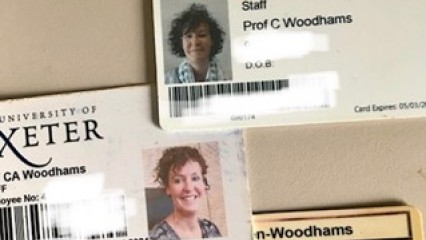
You may have heard a lot in the news about pay gaps, but what really is at the heart of the issue?
The Future of Work Research Centre recently had the chance to interview an expert who knows a lot about this complex subject. Professor Carol Woodhams, a professor in Human Resource Management, explains in this podcast interview the history of pay gap research, the complexity in untangling the root causes of it, and the direction of future research.
Especially illuminating in this episode is learning how deeply entrenched and layered pay gap issues are. As Professor Woodhams shares, rectifying disparities is not as simple as changing a pay gap structure administratively. There are several internal, external, and influential factors (both individual-level and structural) working in concert to make resolving pay gaps more challenging, many of which she has uncovered in her extensive work with the NHS and reporting her research data into UK Health Secretaries over the last decade.
In this interview, Professor Woodhams also shares her top book and scholar picks, and why her library cards (pictured) are one of the most critical accompaniments to her success – and why you should have them, too!
Recommended scholars:
Book recommendations:
- Professions and Patriarchy by Anne Witz
- Relational Inequalities: An organizational approach by Don Tomaskovic and Dustin Avent-Holt
- Equal: How we fix the gender pay gap by Carrie Gracie
Professor Carol Woodhams’ biography:
Carol Woodhams is Professor of Human Resource Management and former Head of the Department of People and Organisations at the University of Surrey. Her research is interdisciplinary and theoretically grounded in psychology, economics, and sociology. Her research interest is in labour market disadvantage. Currently she is best known for progressing an understanding of pay gaps for NHS doctors. She has published widely including in Human Resource Management, the Journal of Social Policy, Human Resource Management Journal, and British Journal of Industrial Relations. She is a Chartered Fellow of CIPD. Earlier this year she was named “Most Influential Thinker in HR 2023” by HR Magazine.
For more about Professor Woodhams and to find her contact information, please see her staff page with the University of Surrey.
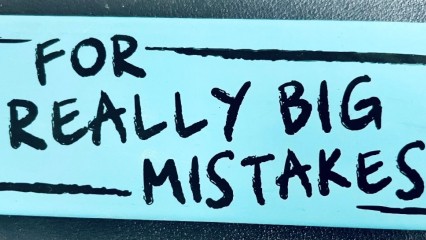
Have you ever wondered what Organizational Neuroscience is (or even heard of it)? Well, it is as fascinating as you think and that is why the Future of Work Research Centre was happy to record a podcast episode with Dr Sebastiano Massaro, one of the leading global experts in this emerging field and a senior lecturer of organizational neuroscience at Surrey Business School.
According to Dr Massaro on the podcast, organizational neuroscience is ‘a field that is leveraging neuroscience theories, experimental approaches, method and practical implications to the advancement of organizational and management disciplines.’ An example he gives in his podcast episode is using smart watch-type technologies to use heart rate signals to understand physiological determinants of human behaviour in the workplace, and even unleash new parameters to predict certain human behaviours by picking up important biological antecedents. The implications of this can be highly consequential to detect stressful environments for employees which can impact productivity and well-being. In short, according to Dr Massaro, this ground-breaking field can ‘generate biologically and physiologically informed models of behaviour in organisations.’
In his podcast episode, Dr Massaro offers the following song, book and scholar pertaining to his research:
- Scholar: David Marr, one of the founding fathers of Computational Neuroscience
- Book: Vision by David Marr - https://mitpress.mit.edu/9780262514620/vision/
- Song: No Surrender by Bruce Springsteen – as a reminder to not listen to those who doubt your ambitions, and to follow your passions in research.
Chosen object: a blue erasing rubber (pictured)! A gift from his mother, it serves as a reminder to him that mistakes are a part of life, and sometimes a critical component in how we learn, how we build our lives and our research.
Here is how you can learn more about him:

How would you define intuition? How does intuition shape our decisions as managers? How can creativity enhance this intuition? On the Future of Work Research Centre podcast, we speak with Prof Eugene Sadler-Smith, a leading scholar in intuition research, who has been writing about these very questions for 20 years.
Intuition is not a blind hunch as some may think, but rather an informed nudge based on life and work experiences pointing us in a particular direction or towards a certain decision. In the workplace, intuition can have positive effects and spur innovation and speed up decisions but can also have potential negative impacts such as systematic errors and unconscious biases in managing fairness. In the podcast episode, Prof Sadler-Smith talks about the importance of managers knowing how much their decisions are rooted in intuition and how these decisions are (or are not) balanced by rationality and logic.
Prof Sadler-Smith offers the following recommendations on a book, scholar and article related to his work:
- Book: Administrative Behavior and The Sciences of the Artificial – both by Herbert Simon
- Scholar: Herbert Simon, scholar on decision-making, and theorist of bounded rationality
- Article: Herbert Simon, ‘Making management decisions: the role of intuition and emotion’ Academy of Management Perspectives.
Chosen object to highlight on the podcast: His A6 notebook (pictured) where he captures his ideas and curiosities. Saying he would be devastated if he ever lost it, he notes the importance of having something non-digital and tangible to capture such ideas and how the very act of writing can spur creativity.
Visit the Hubris Hub for more on Prof Sadler-Smith’s work on hubris.